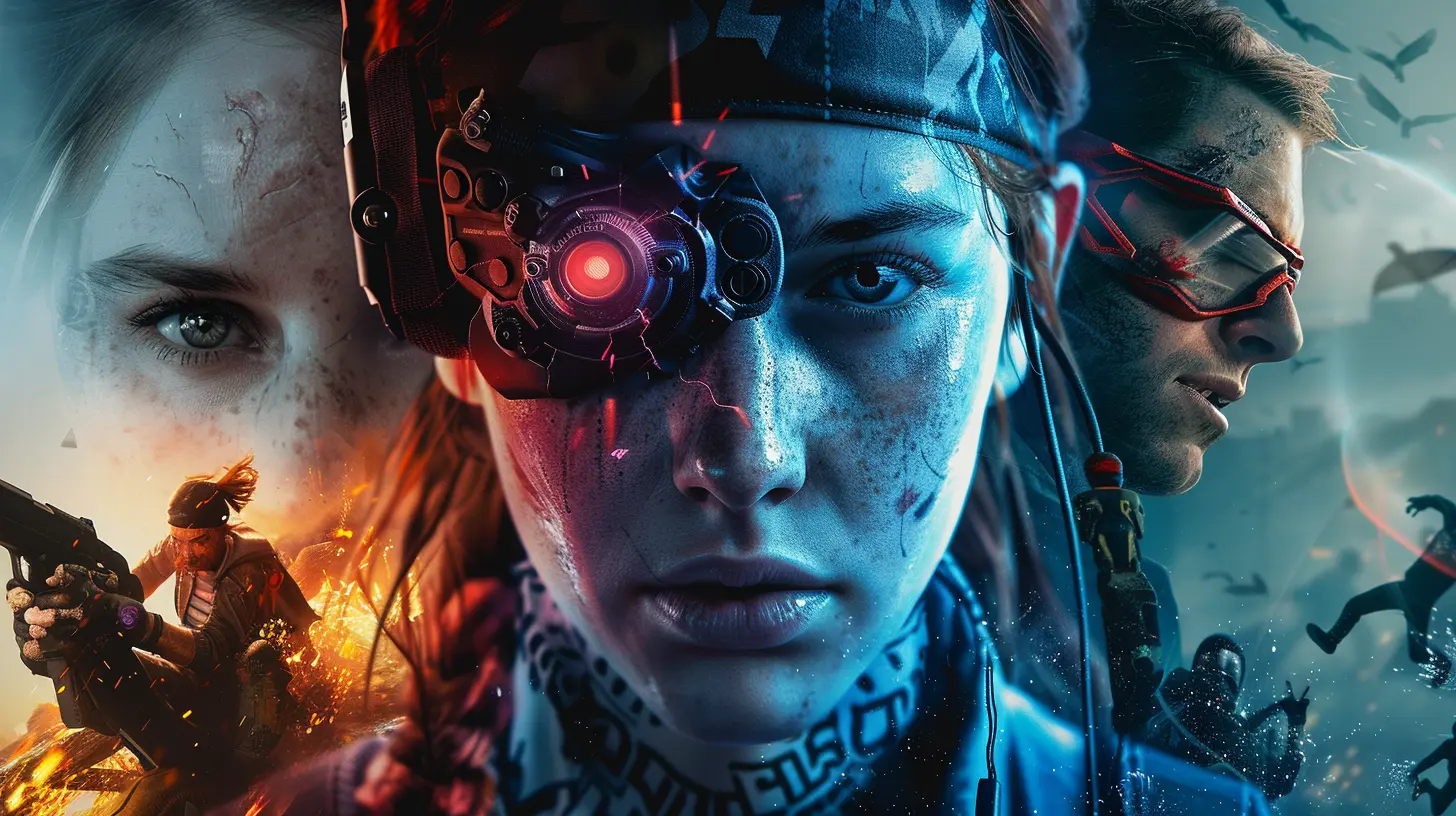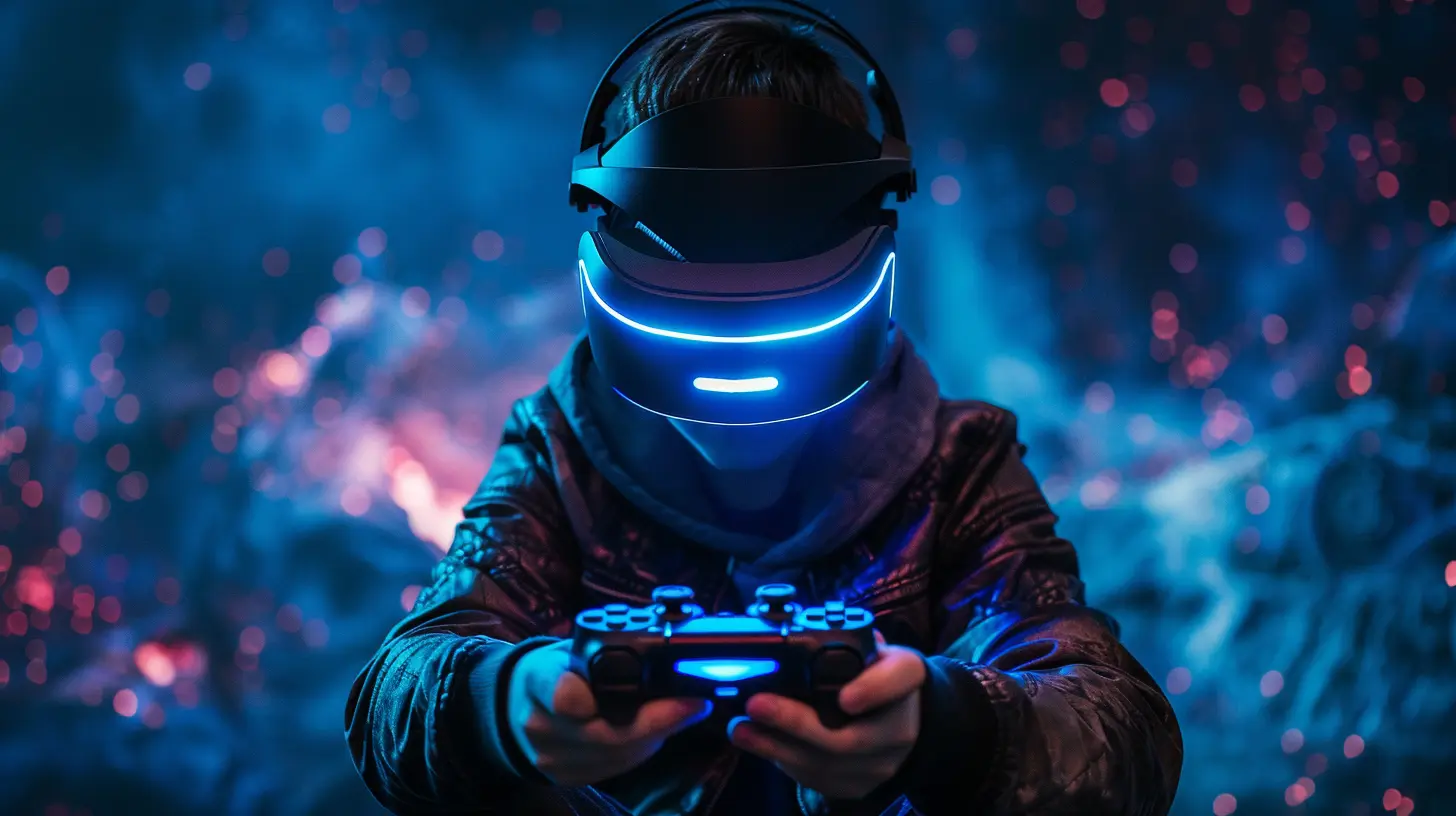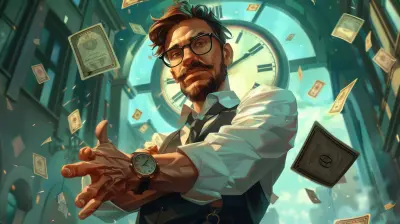The Impact of PlayStation Exclusives on Competitive Gaming
27 June 2025
If you've been around the gaming block for a while, you’ve probably noticed just how big a part PlayStation exclusives play in shaping the gaming landscape. From emotional single-player adventures to intense multiplayer modes, these exclusives do more than just show off what the PS5 can handle — they’re starting to make some surprising waves in the competitive gaming scene too.
In this article, we’re going to break down how PlayStation exclusives are influencing competitive gaming — and maybe even redefining what competitive gaming means.
What Are PlayStation Exclusives?
Alright, before diving into the competitive side of things, let’s clear up exactly what we mean by “PlayStation exclusives.”A PlayStation exclusive is a game that’s either fully or temporarily only available on the PlayStation platform. Think of heavy-hitters like:
- The Last of Us series
- Ghost of Tsushima
- Gran Turismo 7
- Demon’s Souls (Remake)
- Horizon Forbidden West
- Returnal
Some of these start off as exclusives and eventually make their way to PC, but by the time they do, PlayStation players have already had a solid head start. These titles often set the benchmark in terms of gameplay, graphics, and storytelling — but now, they’re starting to creep into the competitive space.
Competitive Gaming: Not Just for Esports Pros
Let’s get one thing straight: competitive gaming isn’t just about flashy esports tournaments with million-dollar prize pools (though that’s definitely fun to watch). It covers everything from ranked multiplayer matches to community tournaments and online leaderboards.Whether you’re grinding your way up in Gran Turismo’s time trials or squaring off in Returnal’s daily challenges, you’re engaging in competitive play. And that’s where PlayStation exclusives are building their own niche.
The Rise of Competitive Elements in PlayStation Exclusives
While PlayStation exclusives have traditionally focused on polished single-player experiences, Sony has been shifting gears a bit. More and more of these titles are incorporating multiplayer elements, co-op mechanics, and competitive systems. Let’s look at a few notable examples.Gran Turismo 7: The Simulation Racer That Went Full Esports
Gran Turismo isn’t just a game anymore — it’s practically a motorsport. With the FIA-certified Gran Turismo Championships, the game has become a pillar in the racing sim community.What makes GT7 so noteworthy in competitive gaming?
- Real-world physics: The driving mechanics are so realistic they’re used in actual racing training.
- Online matchmaking and licenses: Players have rankings similar to traditional esports titles.
- Official tournaments: Sponsored events with real sponsors and cash prizes.
It’s professional, it’s competitive, and it’s only on PlayStation.
The Last of Us Factions: More Than Just Storytelling
While TLOU is mainly known for its gripping narrative, the multiplayer feature — Factions — added a tense and strategic PvP element that fans continue to love. It wasn't an afterthought either; there were tactics, teamwork, and a steep learning curve.The upcoming standalone Factions multiplayer game (based on The Last of Us universe) is shaping up to be a serious contender in the competitive shooter genre. And yep, it’s PlayStation-exclusive at launch.
Returnal: Speedrunning and Daily Challenges
Returnal might seem like a rogue-like space shooter, but there’s a stealthy competitive edge baked right in:- Leaderboards for daily challenges.
- Speedrunning communities competing for the best times.
- Procedural generation that keeps runs dynamic and comparable.
Not every competitive game has to be about fighting another player directly. Sometimes, it’s just you versus everyone else’s high score.
The Exclusivity Edge: How Being PlayStation-Only Affects Competition
So, how does being exclusive impact a game’s competitiveness?Limited Platform = Focused Community
With exclusivity comes a smaller, tighter community. That means matchmaking tends to be more balanced (ironically) because everyone’s playing on similar hardware with similar conditions. A level playing field? Yes, please.Optimization Galore
Exclusives don’t have to fit every console or PC configuration. Developers can fine-tune everything for the PlayStation hardware, which leads to smoother gameplay — a must in any competitive setting.Cultural Identity
Let’s be real — PlayStation exclusives have a style. Whether it’s cinematic storytelling or deep atmospheres, that identity brings in a passionate fan base. This kind of loyal community helps fuel grassroots tournaments, speedrunning events, and longevity in the game’s lifecycle.The Shift Toward Live-Service and Multiplayer-First Titles
Sony used to focus almost entirely on epic single-player games. But now? The business model is shifting.Several PlayStation studios are reportedly working on live-service games with long-term competitive formats baked in. While details are still under wraps, think of games like:
- Fairgame$ (a competitive heist shooter)
- Concord (a sci-fi multiplayer FPS)
Sony’s clearly aiming at the esports and competitive market with these new IPs. If done right, they could go toe-to-toe with the likes of Apex Legends, Valorant, or Call of Duty.
PlayStation and the Esports Dream
PlayStation isn’t exactly new to the esports party, either. They’ve dabbled in it through:- PlayStation Tournaments, an official platform for competitive events.
- Hosting events for third-party titles like FIFA, Mortal Kombat, and Tekken.
- Partnering with the EVO Championship Series (Sony acquired EVO, by the way).
That last point? Huge. EVO is one of the biggest fighting game tournaments in the world, and with Sony now in control, expect PlayStation-exclusive fighters to get a bigger spotlight.
Are We Looking at a New Era of Console Esports?
Let’s face it — PC has usually been the home of competitive gaming. Faster refresh rates, keyboard precision, modding support. You know the drill.But with how powerful the PS5 is, and how seriously Sony is approaching competitive gaming, the gap is closing. Between exclusive titles optimized for the hardware and a growing commitment to online play, PlayStation could genuinely kick off a console-first competitive era.
The Role of PlayStation Plus and Game Accessibility
Can’t talk about competition without players — and a lot of players get into these games through PlayStation Plus.When a game like Destruction AllStars launches on PS Plus, it creates a massive spike in the player base. More players = better matchmaking = healthier competitive ecosystem. Sony seems to understand this and is using PS Plus as a tool to drive community growth around newer, somewhat niche competitive games.
Challenges and Criticism
Okay, now let’s pump the brakes for a sec.Not everything about exclusivity is sunshine and top-10 finishes. There are some real criticisms out there, especially for competitiveness:
- Limited player pools can shrink fast if a game flops.
- Competitive scenes feel isolated vs cross-platform ecosystems.
- No PC support = no mods, no ultrawide, and fewer content creators.
Some fans argue that Sony needs to look beyond console borders if they truly want to foster global esports powerhouses. And honestly? They’ve started doing just that by porting games like Horizon and TLOU to PC.
But it’s slow and deliberate — and they’re still keeping the competitive edge homegrown for now.
What the Future Looks Like
Looking ahead, it’s clear that PlayStation’s game plan is evolving. With more multiplayer-focused exclusives in development and a clear interest in esports infrastructure (hey, EVO again), don't be surprised if the next big competitive title only ships on PS5.Add in features like DualSense adaptive triggers, haptic feedback, and 3D audio — and you’ve got a hardware-platform combo that’s tailored for immersive, competitive experiences. It’s not just about winning anymore; it’s about how intensely you feel that win.
Final Thoughts
So, does competition and PlayStation exclusivity go hand-in-hand? More than ever, yes.What started as an ecosystem known for story-rich solo experiences is now branching confidently into the competitive arena. From FIA-sanctioned racing to speculative heist shooters, Sony’s exclusives are leveling up — not just in graphics or narratives, but in the very way we play to win.
Competitive gaming is no longer reserved for PCs or third-party titles. With a powerful console, a loyal user base, and a growing list of games designed with challenge in mind, PlayStation is carving out a new kind of competitive experience — one that’s more accessible, more cinematic, and increasingly, more exclusive.
Time to re-think what it means to “git gud,” right?
all images in this post were generated using AI tools
Category:
Playstation ExclusivesAuthor:

Jack McKinstry
Discussion
rate this article
2 comments
Juliet Sanchez
Great article! It's fascinating to see how PlayStation exclusives shape the competitive gaming landscape. They truly add depth and variety, enhancing the overall experience for players and fans alike.
November 7, 2025 at 4:07 AM

Jack McKinstry
Thank you! I'm glad you enjoyed the article and share my enthusiasm for the influence of PlayStation exclusives in competitive gaming. They really do enrich the experience!
Melanie McNeil
PlayStation exclusives redefine competitive gaming, fueling passion, innovation, and unforgettable experiences for players everywhere!
June 29, 2025 at 2:52 AM

Jack McKinstry
Thank you for your enthusiastic comment! PlayStation exclusives indeed play a crucial role in shaping competitive gaming, driving innovation and creating memorable experiences for players.


